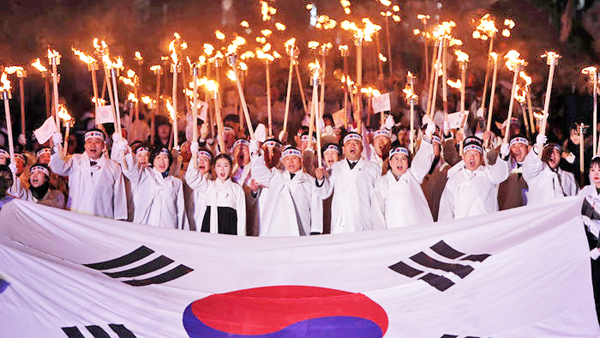On June 3, 2025, Lee Jae-myung of the Democratic Party of Korea was elected as the 21st President of South Korea. The AsiaN is publishing the hopes and expectations of Koreans for the new president and administration in both Korean and English editions. We welcome the interest, feedback, and constructive criticism of our readers.
The AsiaN Editorial Team

By Park Young-soon,
President of the Coffee Critics Association (CCA) and Adjunct Professor of Coffee Studies at Dankook University College of Culture and Arts
SEOUL: The Presidential Election Has Concluded: A Plea for Cultural Sovereignty through K-Coffee
The presidential election has concluded. Rarely have the Korean people experienced a time when anxiety, hope, and urgency were so intensely interwoven. The high voter turnout clearly demonstrates the people’s strong will to shape their own future. As we welcome a new president after a long tunnel of hardship, the first truth we must reaffirm is this: we are a community sailing in the same boat. I sincerely hope the president will demonstrate a leadership of unity that embraces even those who did not support him.
Historically, South Korean presidents began their terms with approval ratings exceeding 70%, only to see them plummet due to failures in national unity. Without overcoming division, neither reform nor the fulfillment of campaign promises is possible. This time, I hope the government will steer the nation with inclusiveness and cohesion so that we may fully unleash the strength of our people on the world stage.
Korea’s cultural power, represented by K-Culture, is drawing global attention. To turn this golden opportunity into a reality, policies that foster everyday pride must accompany our international efforts. Today, drawing from voices in the coffee industry, I earnestly appeal to the president.
Korean society still struggles to move beyond the flawed notion that a person’s worth is determined by wealth. According to Statistics Korea and the OECD, the income quintile ratio in Korea—measuring the income gap between the top 20% and the bottom 20%—stands at 5.4, significantly higher than the OECD average of 3.6. Such disparity entrenches a system in which hard work does not guarantee fair rewards, deepening the sense of helplessness among the socially vulnerable. We must become a society where dedication and effort are more respected than wealth and educational background.
As someone in the coffee industry, I strongly hope for the establishment of K-Coffee’s independence and cultural sovereignty. As of 2023, Korea’s coffee market is valued at approximately 8.7 trillion won (according to the Korea Agro-Fisheries & Food Trade Corporation), and Korea is ranked the sixth largest coffee-consuming country in the world. Despite this vast market, we remain heavily dependent on foreign standards and brands.
For instance, the global coffee championship held in Busan is hosted by a U.S.-based private organization, the Specialty Coffee Association. It is deeply regrettable that even with substantial financial investment, we must select Korea’s representative baristas according to foreign standards. In a climate where even domestic brands rely on overseas scoring systems rather than developing their own quality criteria, can we truly speak of coffee sovereignty?
Government employment policies are also out of sync with the realities on the ground. The National Competency Standards (NCS) system, introduced to value job-related skills over academic background, was intended to focus on practical capabilities. However, in the coffee sector, it has degenerated into a tool that simply aids in obtaining foreign private certifications. These overseas certifications, often costing over one million won, are seen as proof of expertise, while years of field experience are disregarded.
This illustrates our voluntary subordination not to our own standards, but to foreign credentials and brands. As a result, young people chase expensive overseas certificates, while those who have worked diligently in the field suffer from a lack of proper recognition. Our competitiveness and cultural depth in education and content related to coffee are fading.
Mr. President, this issue is not merely one of industrial policy; it concerns our culture and identity. Please establish a system where Korea’s unique capabilities and experiences are duly evaluated. I urge the government to take the lead in building a foundation where K-Coffee’s branding and educational content can be recognized with pride on the global stage.
According to the Ministry of SMEs and Startups (2023), the five-year survival rate of self-employed businesses in Korea is barely over 30%. This underscores the harsh reality in which many are fighting for survival. Local, character-filled cafes are being pushed out by large franchises, posing a threat not only to small business owners but also to our cultural diversity.
It is time for a national campaign to cherish “our own.” Let our stories be contained in every cup of coffee, and let the world recognize that “K-Coffee is special.” Please support this cultural pride with corresponding policies. The coffee community of Korea is already prepared. Mr. President, we ask you to carry this torch forward.




